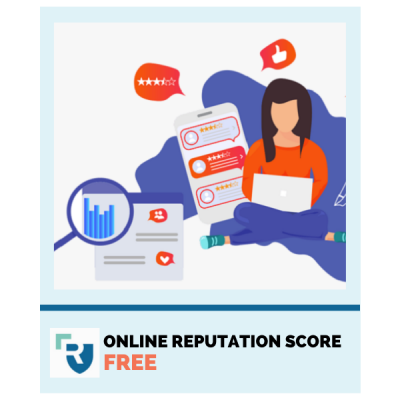How to Remove Personal Information from the Internet
Have you ever wondered how your personal information ended up online? Or why are you constantly bombarded with unsolicited calls from unknown numbers? It’s all thanks to data brokers—companies that collect, store, and sell your personal details to the highest bidder. These brokers gather your data from various sources, including public records, social media, and even purchase histories, and then sell it to marketers, advertisers, and other businesses. As a result, your personal information, like your full name, address, phone number, and email, is readily available to anyone who knows where to look.
But that’s not the worst part. Some of this information ends up on websites that expose it to the entire internet, leaving your personal details vulnerable to identity theft, scams, and harassment. In this blog, we’ll dive into the dangers of these websites, how to remove your information, and how you can take control of your online privacy.
Why Are These Websites Dangerous for Your Online Privacy?
10 Websites That List Your Personal Information
The internet is full of websites that can easily expose your personal details. Many data broker websites collect and display sensitive information such as your full name, address, phone number, email, and even your social media profiles. These platforms often collect data from public records, online activities, and social media platforms, sometimes without your knowledge or consent.
Here are 10 websites that may list your personal information:
- Whitepages
- Spokeo
- Intelius
- PeopleFinders
- MyLife
- BeenVerified
- PeekYou
- ZabaSearch
- Pipl
- Radaris
These sites can be dangerous because they expose your personal details to anyone who knows where to look. Cybercriminals can use this information to steal your identity, while others may use it for stalking or harassment. Additionally, some sites may feature negative or defamatory content that harms your reputation.
Why Are These Websites Dangerous for Your Online Privacy?
10 Websites That List Your Personal Information
In today’s digital age, many websites collect and display personal information for various reasons, often without users’ consent. These platforms can reveal sensitive details like your full name, home address, phone number, and even email addresses. Most of these sites gather data from public records, social media profiles, and other publicly available sources. While some claim to offer “people search” services or background checks, the unintended consequence is that your private information is exposed to the world, often without you even realizing it.
Below is more detail about some of the most well-known websites that list personal information:
- Whitepages (People Search)
- Whitepages is a popular people search website that provides detailed contact information such as phone numbers, addresses, and even criminal records. It’s one of the oldest and most well-known people search sites.
- Whitepages is widely used in the U.S. and offers services for finding people by name, address, or phone number. It also provides reverse phone lookup services, which are common for people trying to identify unknown callers.
- Whitepages has earned its reputation due to its long-standing presence on the internet and its comprehensive database, which pulls information from various public records. It’s popular for those conducting background checks or searching for old friends or lost connections. However, the same tools can be a privacy risk, as they list your personal details for public access.
- Spokeo (People Search)
- Spokeo aggregates information from public records, social media profiles, and other online sources to create detailed people reports, including names, addresses, phone numbers, and more.
- Primarily used in the U.S., Spokeo is a go-to tool for people looking to reconnect with old acquaintances or conduct background checks.
- Spokeo has a simple, user-friendly interface and pulls from a wide range of sources, making it a convenient and accessible option for finding individuals. Its ability to pull data from social media and online profiles makes it an attractive service for both legitimate and potentially harmful purposes.
- Intelius (People Search & Background Checks)
- Intelius offers detailed background checks, including information like addresses, phone numbers, court records, and criminal histories. It also provides services such as reverse phone lookups and email search.
- Popular mainly in the U.S., Intelius is often used for professional background checks, dating, and real estate transactions. It’s also commonly used for checking on potential employees or business partners.
- Intelius offers a variety of services, including reverse phone number lookups, which adds to its utility. Its comprehensive background check services attract both businesses and individuals who need detailed personal information.
- PeopleFinders (People Search)
- PeopleFinders specializes in people search and background checks. It provides contact information, criminal records, marriage and divorce records, and other personal information.
- PeopleFinders is primarily used in the U.S., often for background checks or reconnecting with lost contacts.
- PeopleFinders is known for its easy-to-use interface and quick search results. It offers a lot of data for a relatively low cost, making it a popular choice for individuals needing to find people or check background information.
- MyLife (Reputation Management)
- MyLife is a reputation management site that provides individuals with background information and reputation scores, which are based on things like public records and reviews.
- MyLife is most commonly used in the U.S., particularly for those trying to research others’ reputations or manage their own.
- The platform’s unique reputation scoring system makes it stand out, allowing people to gauge how others perceive them based on available public information. However, this system can sometimes be unfair, as it may include incorrect or outdated information.
- BeenVerified (People Search)
- BeenVerified offers people search and background check services, providing access to information like contact details, criminal records, and even social media profiles.
- Primarily used in the U.S., BeenVerified is popular among people who need to run quick background checks or verify personal details.
- BeenVerified is widely recognized for its extensive databases and affordability. The platform’s access to social media profiles makes it particularly useful for those wanting to find additional context about someone.
- PeekYou (People Search)
- PeekYou searches the web for publicly available information about individuals, such as social media profiles, contact details, and even user-generated content like blog posts or forum discussions.
- Primarily popular in the U.S., PeekYou is often used for locating people online and checking their digital footprint.
- PeekYou stands out by focusing on information gathered from social media and public websites, providing users with a broad picture of someone’s online presence. It’s popular because it gives a snapshot of a person’s digital footprint, but that same access can be a privacy risk.
- ZabaSearch (People Search)
- ZabaSearch allows users to search for people’s phone numbers, addresses, and other personal information. It pulls data from public records and other online sources.
- Most popular in the U.S., ZabaSearch is often used for finding people based on name and location.
- ZabaSearch provides free basic information, which makes it a go-to resource for people looking to reconnect with others. The downside is that it can expose your personal details to anyone searching for you.
- Pipl (People Search)
- Pipl is one of the more comprehensive people search engines, specializing in deep web searches. It compiles information from social media, public records, and other online sources to generate detailed profiles.
- Popular globally, but most commonly used in the U.S., Pipl is frequently utilized by businesses for due diligence and personal searches.
- Pipl’s ability to search the deep web and offer detailed reports on individuals gives it a unique edge. It’s widely used by private investigators and businesses needing accurate and thorough background checks.
- Radaris (People Search & Background Checks)
- Radaris provides information on individuals, including contact details, social media profiles, and background check data. It also offers services for checking public records.
- Radaris is most commonly used in the U.S. and is frequently used by individuals and businesses for background checks.
- Radaris is known for its comprehensive reports, pulling information from various databases to give users a broad view of someone’s background. This makes it a valuable tool for both personal and professional investigations.
Other Websites That List Your Personal Information
- Beyond these well-known data broker sites, there are other platforms where your personal data could end up, such as social media sites, public records websites, and online forums. Each of these can contribute to the exposure of your private details, further compromising your online privacy.
Other Websites That List Your Personal Information
Beyond the data broker sites listed above, there are many other platforms that could reveal your personal details. These include:
- Social Media Sites (Facebook, LinkedIn, Instagram): These platforms make your personal information public depending on your privacy settings. Your address, phone number, and personal interests could be accessible by anyone.
- Public Records Websites: These websites compile legal and financial records, sometimes exposing your past addresses, court records, and more.
- Online Forums and Blogs: If you’ve posted personal information on public forums or blogs, it could also end up indexed by search engines, revealing more than you intended.
These websites can further compromise your privacy, making it harder to protect your personal information.
How to Remove Your Personal Information from the Internet
If you’ve discovered your personal information online, it’s time to take action. But how to remove personal information from Google for free? Here’s how to start:
- Request Removal from Websites: Many data broker sites offer a way to request the removal of your information. This may involve submitting a form or contacting customer support.
- Use Google’s Removal Tools: If your personal information is showing up in Google search results, use the “Remove Content from Google” tool to request the de-indexing of specific links.
- Opt-Out from Data Brokers: Websites like Spokeo, Whitepages, and Intelius have opt-out forms that allow you to remove your personal details from their listings.
- Hire a Reputation Management Service: For a hassle-free experience, consider working with a company that removes personal information from the internet to handle the process for you.
Delete Your Information from the Internet Free
If you’re looking to remove your information from the internet for free, the process is possible, though time-consuming. You’ll need to manually opt-out of each data broker website, adjust privacy settings on your social media accounts, and contact the administrators of other websites that display your personal data. While this is effective, it’s important to remember that removing personal information from the internet is an ongoing task—new sites may continue to collect and display your data.
How to Delete Your Name from the Internet
Many people wonder how to remove your name from the internet, particularly if it’s associated with negative or unwanted content. You can start by contacting websites directly and requesting that they remove your name from their search results. However, if this doesn’t work, you may need to explore more advanced solutions, such as legal action, to protect your privacy.
Remove Negative or Defamatory Information from Google
If negative or defamatory content about you is appearing in Google search results, it’s essential to act quickly to protect your reputation. Here’s what you can do:
- Request Removal from Websites: Contact the website hosting the content and request that it be taken down.
- Use Google’s Content Removal Tool: If the content remains accessible through Google search results, use the Content Removal Tool to have it de-indexed.
- Seek Legal Action: If the content is harmful or false, consider legal measures to remove defamatory material.
Companies That Remove Personal Information from the Internet
If you want a professional solution, consider using ReputationProtectionOnline.com. This company specializes in removing personal information from various websites, including data brokers, search engines, and social media platforms. With their help, you can safeguard your online privacy.
What’s even better? At ReputationProtectionOnline.com, they offer a simple and affordable solution—just $9 to remove your personal information from the internet. This affordable service allows you to enjoy peace of mind knowing your data is protected without having to spend a fortune.
Protecting your personal information online is a critical step toward maintaining your privacy and security. Whether you’re dealing with unwanted calls, identity theft, or online harassment, the best course of action is to take control of your digital footprint. By using tools like Google’s Content Removal or opting for professional services like ReputationProtectionOnline.com, you can effectively remove unwanted information and regain control over your online presence. Don’t let your personal data stay exposed—act now to protect your privacy.








